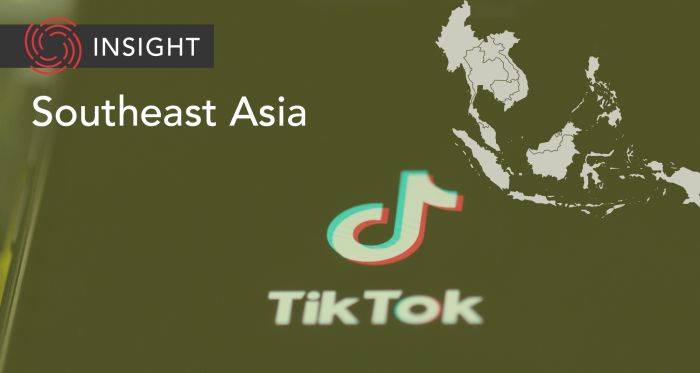The Takeaway
On September 28, Indonesia introduced stricter regulations on e-commerce transactions, including banning e-commerce on social media platforms and barring overseas sellers from operating on domestic e-commerce platforms. According to the government, the law will safeguard domestic e-commerce platforms and protect offline businesses — especially micro, small, and medium-sized enterprises (MSMEs) — and consumers’ personal data. Critics say the regulations could disrupt the livelihoods of millions of sellers in the country, especially those who use TikTok, and impede Indonesia’s efforts to digitalize MSMEs to promote domestic products, reduce imports, and make businesses more resilient.
In Brief
- Indonesia has 64.2 million MSMEs that collectively comprise the equivalent of 61 per cent of the country’s GDP. The government says that “predatory” pricing, especially the practice of selling cheaper products on social media platforms, significantly threatens offline small and medium-sized local businesses. According to the Indonesian government, the new policy will promote fairer business competition.
- Indonesian Minister of Trade Zulkifli Hasan has emphasized the need to sever the connection between social media and e-commerce to prevent full algorithm control and prohibit social media companies’ use of personal data for business purposes. Under the regulations, social media platforms can still place ads and promotions but cannot be used for transactions, albeit with some exceptions. Social media companies wanting to engage in e-commerce will now be required to obtain a specific licence and create a separate app for their e-commerce platform. Moreover, the law stipulates that imported goods can only be sold if they are valued at more than C$137 (1.5 million Indonesian rupiah). This is designed to protect local producers from the influx of cheap imported goods.
- The ban is expected to favour the companies currently dominating Indonesia’s e-commerce market, such as GoTo’s Tokopedia, a homegrown tech firm; Singapore-based Sea’s Shopee; and Chinese e-commerce giant Alibaba’s Lazada. These companies have faced increasing competition from TikTok’s aggressive plan, announced just three months ago, to invest in Indonesian e-commerce as part of the app’s larger plans to expand into Southeast Asia.
- To comply with the new regulations, Tokopedia and Shopee Indonesia have banned overseas sellers from operating on their platforms. However, some overseas sellers have discovered a workaround by opening fraudulent “local shops” and shipping their goods to a local warehouse in Indonesia before being sent to the customer.
Implications
The ban will hit TikTok especially hard, as it is the only social media company that sells products directly on its app. TikTok has 125 million active monthly users in Indonesia, making it the company’s second-largest global market after the U.S. TikTok's plans for Indonesia had included expanding its e-commerce platform, TikTok Shop, which quickly became a key player in the e-commerce market after its launch in 2021. E-commerce transactions in Indonesia reached about C$71 billion (230 trillion Indonesian rupiah) in 2022, and about five per cent of these transactions happened through TikTok. The ban will directly impact the livelihood of six million sellers and seven million affiliate creators who use TikTok Shop in Indonesia.
The government’s protectionist approach may reduce competition in the e-commerce market and raise prices for consumers. The ban could also lead to a steep decline in sales for MSMEs relying on e-commerce and hinder their post-pandemic recovery if they struggle to promptly migrate to other e-commerce platforms.
Experts warn that the ban may also impede the government’s target of helping 30 million MSMEs enter the digital market by 2024. The government’s MSME digitalization plan strives to make domestic products more accessible and competitive in the market, as about 50 per cent of the products sold through e-commerce are imported. However, removing a very accessible and widely used e-commerce platform like TikTok could discourage MSMEs from digitalizing their businesses.
What’s Next
1. Will Indonesia be an isolated case?
Indonesia is the first Southeast Asian country to push back against TikTok with its new regulations. Other governments could follow in Jakarta’s footsteps, especially if they sense that such protectionist policies are popular with the public.
2. Possibility of more protectionist regulations
In recent years, the Indonesian government has implemented several protectionist policies across a range of sectors, including the mining industry, which saw a ban on exports of raw nickel and bauxite and a requirement that electric vehicles produced and sold in Indonesia be made of at least 35 per cent local components. This trend could continue as Indonesia heads into legislative and presidential election season in February 2024, especially if candidates anticipate that protectionist policies will be received positively by voters.
• Produced by CAST's Southeast Asia team: Alberto Iskandar (Analyst) and Saima Islam (Analyst).




